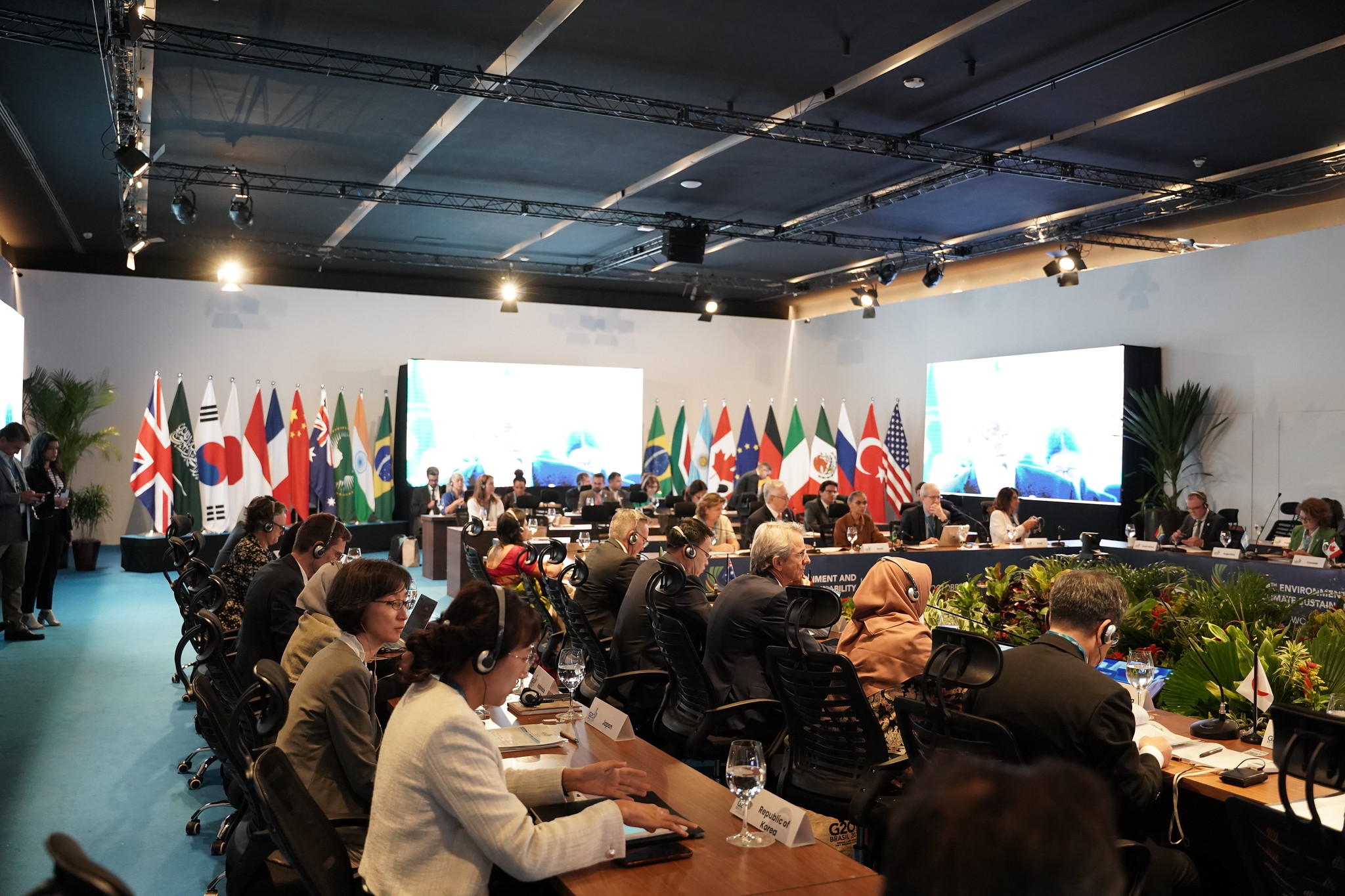G20 could reduce emissions equal to India’s carbon footprint and benefit communities by investing in nature

G20 Environment and Climate Sustainability Ministerial Meeting. Photo: Vanderlei Vieira
On the day of the G20 Summit in Brazil, new data launched by Nature4Climate reveals the 20 world’s largest economies could reduce greenhouse gas emissions by 3370 million tonnes of carbon dioxide equivalent per year (MtCO2e) – comparable to India’s total emissions in 2023 – by prioritising nature in their climate strategy plans. The findings, analysed from Nature4Climate’s naturebase platform demonstrate the potential for natural climate solutions (NCS) – such as climate-smart forestry and coastal wetland restoration – to mitigate climate change and deliver additional benefits to biodiversity, ecosystem and human well-being.
Natural climate solutions (NCS) interventions that protect, better manage and restore nature to reduce greenhouse gas emissions and store carbon. They also offer a host of benefits to people, including increasing resilience from natural disasters such as storms, promoting clean air and water by removing pollutants and sediments, creating new jobs and supporting economies.
Read more
Related articles for further reading
James Lloyd, Nature4Climate’s Policy Lead, added: “Our analysis shows that protecting and restoring natural ecosystems isn’t just about saving species, it’s critical to tackle the climate crisis and support Indigenous communities and economies. This analysis shows how critical the COP29 and the G20 conferences are, where leaders face mounting pressure to take action for people, climate and nature. There is no climate or economic solution without nature. We need radical and ambitious thinking from all corners of society to take action with nature to tackle the climate crisis.”
The new analysis from naturebase.org, a climate action open-data platform from the global Nature4Climate (N4C) coalition, finds:
- Indonesia could meet half of its emissions reduction targets in their NDCs through nature-based solutions.
- Brazil and Canada could achieve at least 40% of their climate target through natural climate solutions.
- Argentina, which just last week withdrew from the COP29 climate negotiations, could address almost its entire NDC target by using natural climate solutions.
However, the researchers note that all countries must prioritize rapid emissions reductions across all sectors alongside actions that protect, manage and restore nature.
Among the leaders in the G20, Brazil’s NDC shows how the country prioritizes nature and food actions to meet climate commitments. Outside of the G20, Colombia is another leader in this area. Other G20 governments can and should take inspiration from these leaders and look to nature for solutions.
“Managing the 20 largest economies of the world, G20 leaders have an opportunity to capitalize on this potential through their national climate plans and in securing more equitable flows of financing for nature and climate action,” added Lloyd. G20 member countries also defined principles to address development and sustainability through nature-based solutions in September.
The naturebase platform can help policymakers identify the opportunities to implement natural climate solutions in their counties, to help meet their Nationally Determined Contributions (NDCs) and reduce emissions under the Paris Agreement.
Chris Zganjar, NCS Information Specialist, at The Nature Conservancy, and part of the development team for Naturebase, said:
“Naturebase data and other emerging tools can help governments to understand the full breadth of potential for NCS, across multiple nature-based pathways, not just forests, and see these in one place to help investors and other actors understand and act on this potential too.”
Chris Zganjar, NCS Information Specialist.
With naturebase, users can identify which types of NCS could be most impactful in their country, region or area. It can also provide Indigenous Peoples and local communities with information about their lands’ carbon benefits and natural resources, and support access to income from carbon markets and funds through the protection, management, and restoration of natural systems. The platform also offers a screening process to assist project developers in identifying potential human rights risks that may result from NCS project implementation.
Untapped potential lies in nature across many of the G20 countries. Existing nature leaders are showing that it is possible and that it can be done, and naturebase data and other emerging tools can empower communities and help governments act.
About Nature4Climate and naturebase.org
Nature4Climate (N4C) is a global coalition of environmental organizations and research institutions working to promote natural solutions to climate change. The naturebase interactive platform provides science-based data and tools to help decision-makers identify and implement high-impact nature-based climate solutions, whilst improving livelihoods and protecting biodiversity.
For detailed country-specific data on country carbon potential through NCS, visit naturebase.org.
About the methodology
Each naturebase dataset estimates the emissions mitigation potential of NCS activities. This was assessed for each G20 country combining all NCS pathways, revealing the total NCS potential per country. This was then compared with published NDC targets for each country. Naturebase data is derived from original geospatial analysis using the latest satellite and peer-reviewed datasets of current land systems, geospatial data, and carbon emissions and sequestration estimates informed by peer-reviewed publications.
